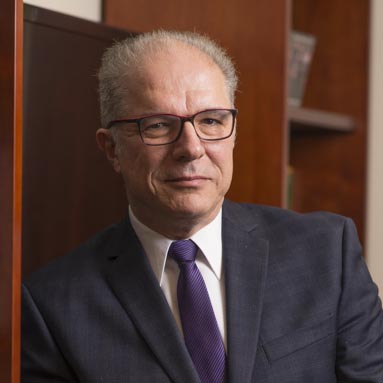WPI researchers were awarded, through the Office of Sponsored Programs, a record $56 million in government, corporate, and private funding for their work during the 2020 fiscal year, up 50 percent from the previous year.
About 240 awards were received during the year ended June 30, supporting work ranging from learning technologies to the development of PracticePoint facilities at the Gateway Park campus.
Talented faculty, Research Solutions Institute efforts to find and develop grant opportunities, and new facilities such as the PracticePoint healthcare development and testing facility and the photonics Laboratory for Education and Application Prototypes (LEAP), have helped increase sponsored research funding over the last five years, says Bogdan Vernescu, vice provost for research.

“We’ve built infrastructure through our Research Solutions Institute to support research, we know what expertise our researchers have, and we are finding opportunities to go after and support faculty to develop the proposals,” Vernescu says. “The support we provide allows researchers to seek out larger, more complex awards and to work across disciplines on proposals.”
In 2015 WPI developed a strategic plan to increase research funding, and funding has increased more than 140% since then. The amount of research money a university brings in matters because it can support exciting research that bolsters reputation and attracts more students. At WPI, it also helps to financially support more than 150 graduate students, research scientists, and research engineers. In FY2020, research expenditures on grants were about $31.7 million.
In addition, research funding opens opportunities in the labs, which benefit students by preparing them for the workforce, Vernescu says.
“If we have faculty and infrastructure that is at the cutting edge of technology and science, we can train our students for the best jobs,” Vernescu says.
The biggest funder of awards to WPI during 2020 was the National Science Foundation, which originated about $17.9 million in awards to the university’s researchers, followed by the U.S. Army, the U.S. Department of Energy, the U.S. Department of Education, and the National Institutes of Health.








